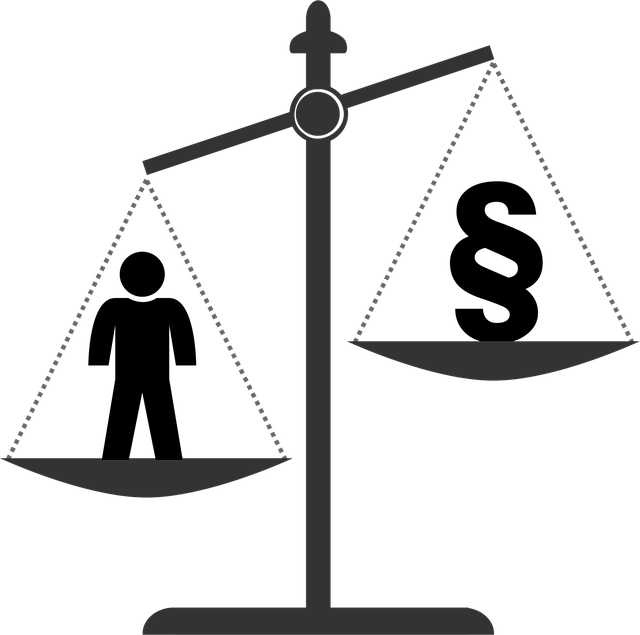Navigating Appealing Administrative Law Judge Decisions is crucial for healthcare providers to contest rulings impacting their practices. This involves understanding administrative law principles, submitting robust arguments and evidence, and securing favorable outcomes through meticulous preparation and strategic advocacy. Common grounds for reversal include procedural errors and misinterpretations of medical evidence, with successful appeals requiring a thorough assessment and well-planned strategy.
In the intricate landscape of healthcare, navigating legal complexities is paramount. When administrative decisions threaten practices and patient care, understanding Appealing Administrative Law Judge Decisions becomes crucial. This article dissects a pivotal aspect of healthcare law, guiding providers through the process. We explore common grounds for reversing ALJ decisions, strategic approaches to bolster appeals, and the implications for healthcare providers. By demystifying this intricate procedure, we empower professionals to protect their rights and maintain quality patient services.
- Understanding Administrative Law Judge Appeals
- Common Grounds for Reversing Decisions
- Legal Strategies for Effective Appeals
- Impact of Appealing on Healthcare Providers
Understanding Administrative Law Judge Appeals
Navigating Administrative Law Judge Appeals is a crucial step for healthcare providers seeking to challenge decisions that can significantly impact their practices. These appeals often revolve around issues related to licensing, regulations, and coverage determinations. Understanding the process is essential for achieving extraordinary results, especially when winning challenging defense verdicts across the country.
The appeal process involves submitting detailed legal arguments and evidence to support the case. Healthcare professionals must familiarize themselves with administrative law principles and procedural requirements. By presenting a compelling argument and addressing any regulatory or factual errors in the original decision, they can enhance their chances of a favorable outcome. Consistently, successful appeals result from thorough preparation and a deep understanding of both the legal framework and the specific circumstances of the case.
Common Grounds for Reversing Decisions
When considering Appealing Administrative Law Judge Decisions in healthcare legal issues, several common grounds emerge that can provide a route for reversal. These often center around procedural errors or the misinterpretation of medical evidence, which can significantly impact the fairness and accuracy of the initial ruling. For his clients, understanding these grounds is crucial as it offers a strategic approach to challenging decisions throughout all stages of the investigative and enforcement process.
Among the key arguments are questions of law, where the appeal challenges the application or interpretation of legal principles by the judge. Additionally, factual errors, such as misrepresentations or omissions in the record, can be grounds for reversal. In high-stakes cases, where the outcome may significantly affect a healthcare provider’s future practices and reputation, meticulous review of these aspects becomes essential to ensure justice is served.
Legal Strategies for Effective Appeals
When it comes to healthcare legal issues, navigating appeals processes is a critical step for providers and patients alike. Effective legal strategies for appealing Administrative Law Judge (ALJ) decisions are essential in ensuring fairness and accuracy within the healthcare system. The process demands meticulous attention to detail, rigorous documentation, and a deep understanding of medical and legal principles.
A robust approach involves thoroughly reviewing the ALJ’s decision, identifying errors or inconsistencies, and crafting compelling arguments based on relevant laws and regulations. An unprecedented track record in appealing these cases can be achieved by presenting strong evidence, leveraging expert testimony, and demonstrating a comprehensive grasp of the unique challenges within healthcare administration. Unlike traditional jury trials, administrative appeals focus on legal interpretation, making persuasive legal writing and strategic advocacy key to success across the country.
Impact of Appealing on Healthcare Providers
For healthcare providers, appealing Administrative Law Judge (ALJ) decisions can be a complex and time-consuming process. It involves navigating intricate legal procedures and regulations, which can significantly impact their operations and revenue streams. When an ALJ renders a decision against a provider, they often have the right to appeal, but this decision should not be taken lightly. The appeals process can be lengthy and costly, requiring detailed documentation and rigorous argumentation.
Across the country, healthcare providers with strong legal representation have achieved unprecedented track records in successfully appealing ALJ decisions. This demonstrates that an aggressive yet strategic approach can lead to favorable outcomes. However, it is crucial for providers to understand that each appeal case is unique, and the success rate varies based on the merits of the case and applicable laws. Therefore, a thorough assessment and well-planned strategy are essential from the onset to maximize the chances of a positive resolution.
Appealing Administrative Law Judge (ALJ) decisions in healthcare is a complex yet vital process for providers seeking justice and fairness. By understanding the grounds for reversal, implementing effective legal strategies, and recognizing the potential impact on their practices, healthcare professionals can navigate these legal issues with confidence. Armed with knowledge of administrative law, they can advocate for themselves and ensure that patient care remains a top priority throughout the appeals process.






